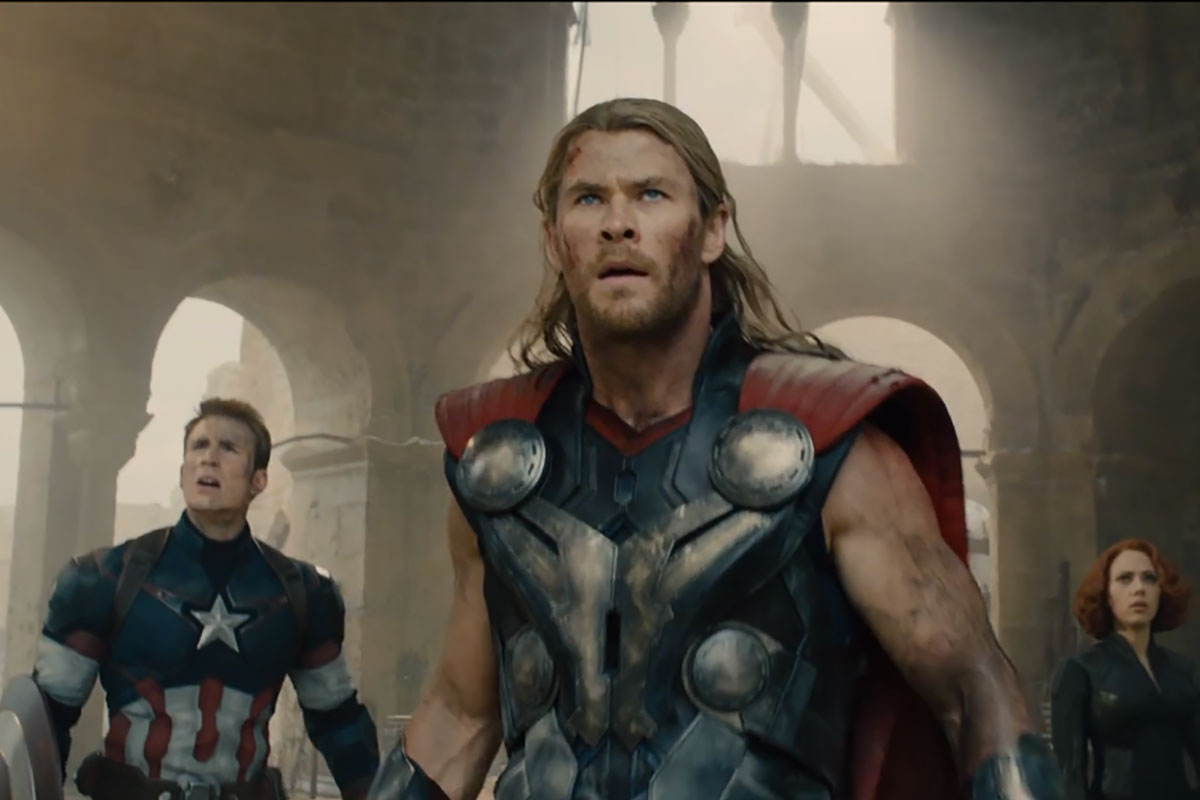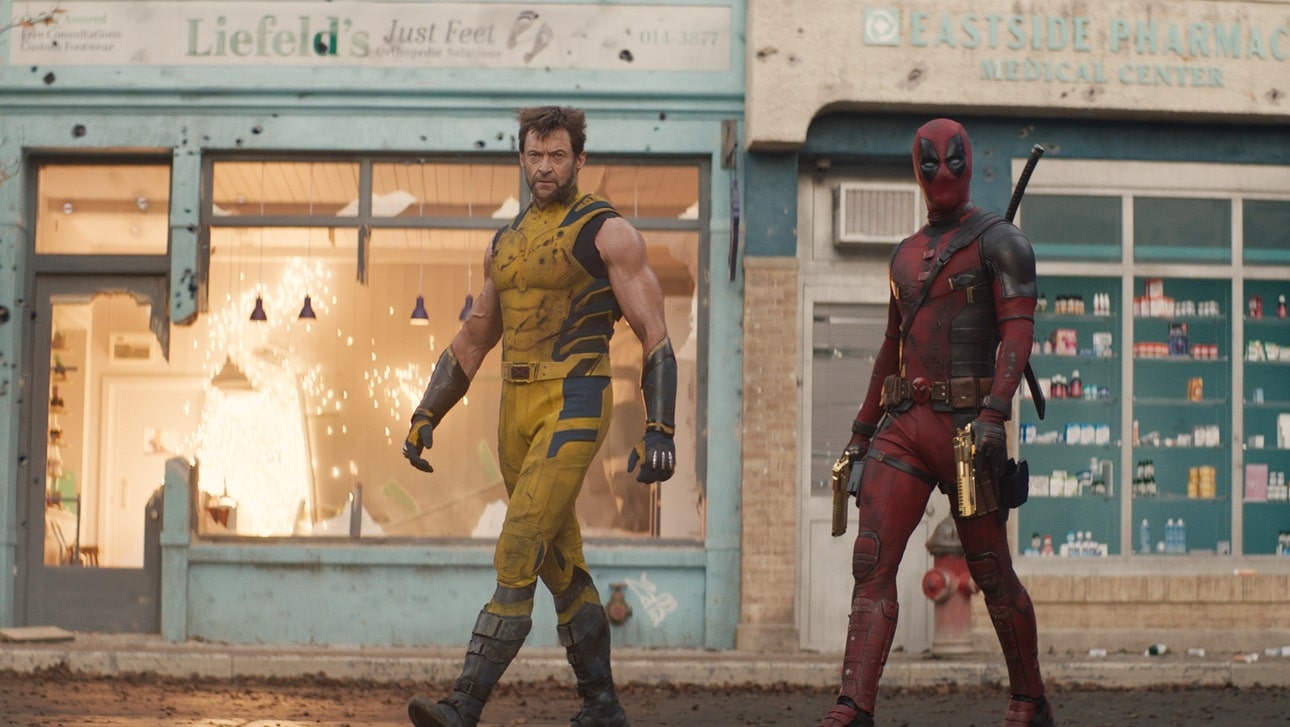What’s the most memorable piece of music from any Marvel movie?
When I asked myself that question, the first thing that came to mind was AC/DC’s “Back in Black” as heard in Iron Man. Why is that? Why is the most memorable auditory moment in the numerous films Marvel has produced a licensed track from the first movie they consider a part of their modern canon? YouTube filmmakers Brian Satterwhite, Taylor Ramos, and Tony Zhou have the answer for you in a new video from their channel Every Frame a Painting called “The Marvel Symphonic Universe.”
In the video, embedded above, the narrators discuss the little-known Hollywood trade practice of “Temp Tracking,” where an editor uses another film’s score to put together an initial cut of the movie. Temp scores are ultimately meant to be replaced by a composer’s wholly original production, but sometimes directors or producers will tell the composer to consciously imitate the temp track because they have become familiar with it. In this way, temp tracks are the bubblegum pop of the film industry– even if you hate “Call Me Maybe” the first time you hear it, if you listen to it enough it’ll start to worm its way into your brain until you can’t imagine life without it.
Unfortunately, when everyone consciously creates scores that sound like music that came before them, the end result is that everything sounds the same. It’s uncanny how similar a number of the examples in “The Marvel Symphonic Universe” sound to one another. The Transformers/Thor and Mad Max: Fury Road/Captain America comparisons struck me as particularly egregious.
Risk is necessary in every part of film. At its best, taking a risk on something like a soundtrack creates something that resonates deeper than any generic symphony ever could. Just ask Guardians of the Galaxy. Or even the character score for Wonder Woman in Zack Snyder’s Batman v Superman: Dawn of Justice.
If you are interested in continuing to follow the phenomenon of temp tracking after watching the video, the members of Every Frame a Painting have set up a Twitter account to document and bring awareness to examples of the practice.








I’m OK with not having memorable music. These aren’t broadway musicals designed to sell original-cast soundtrack recordings. A big fanfare or a recurring character motif is nice, but for the most part, the music should simply be part of the scene.
Of course that doesn’t mean it should be copy-paste clip-art music like seems to be happening with temp tracks… the score should be as customized to the scene as the video is.
I think that a unique and original score adds to the longevity of the piece as a whole and arguably increase the brand value of that piece. I think the criticism of the music used in the Marvel movies is actually an extension of some critics opinions of the plot, narrative and theme repetitivity of the movies in general.
One of the things I seem people seem pretty unanimous about most DC movies over the time they have come out are how additive the scores to those movies end up being in representing the movies as a whole. I would stack the theme to the original Superman as essential to that films recognizability to that of Star Wars, Third Encounters, or Indiana Jones. As a teen, the very first score for a movie I ever bought was Danny Elfman’s score to Burton;s first Batman film. Today, I still hum both in my head regularly. Hans Zimmer’s scores for Nolan’s movies were regularly up for awards precisely because of how much they added to what was on screen. Hell, as derided as it was, many of the positive criticism of B vs S was Wonder Woman and her theme, which has seemed to carry over quite proudly over to the trailers for her first feature..
While I get not wanting to spend the money to differentiate the scores of these movies from each other, I think by the obvious homogenization of “basing” the scores of these movies on other hits, they only add to the criticism that seems to rise with every release of how homogenized the films are in general.
(Let me say as a disclaimer: I am quite fond of most of the Marvel movies that have come out, loving the 2nd and 3rd entries of Captain America especially, and only try to point out this critique of the music in hopes of making these films even better experiences in the theater. than they already are.)
And yet I recognize Captain America’s and the Avengers’ theme music when they use them in the different Marvel movies (even in something as subtle as the Avengers HQ reveal in Ant-Man), so it’s not accurate to say the MCU scores are not memorable.
In fairness Mike, you’re talking about two motifs out of how many movies now?
“Marvel sacrifices emotional richness for these safe choices.”
In fairness though, this applies to just about everything about the Marvel movies, not just the music.
On the contrary, actually. Even though I don’t remember many anymore, there’s one composer whose trackbites I’ll always remember; Henry Jackman’s. I thought the Winter Soldier theme was my absolute favorite in the MCU, with it’s haunting tone, the alternated human voice and the industrial influences, until I heard the theme to the Black Panther. It’s so unique and fitting to who T’Challa is, that it became one of my key memories when I think of Civil War.
Ultimately I think it comes down to what the director has envisioned the movie to be, but because the Russo Brothers have always been score driven, I think it’s safe to say we’ll get a very memorable one in Infinity War.
The temp tracking phenomenon isn’t new, although it may have become more common. A famous, much older example is the score to Stanley Kubrick’s 2001: A Space Odyssey. Kubrick had commissioned a score from the renowned film composer Alex North, but fell in love with the classical recordings he had been using as guide tracks and left them in. North didn’t find out his score wouldn’t be used until he attended the premiere!
Comments are closed.